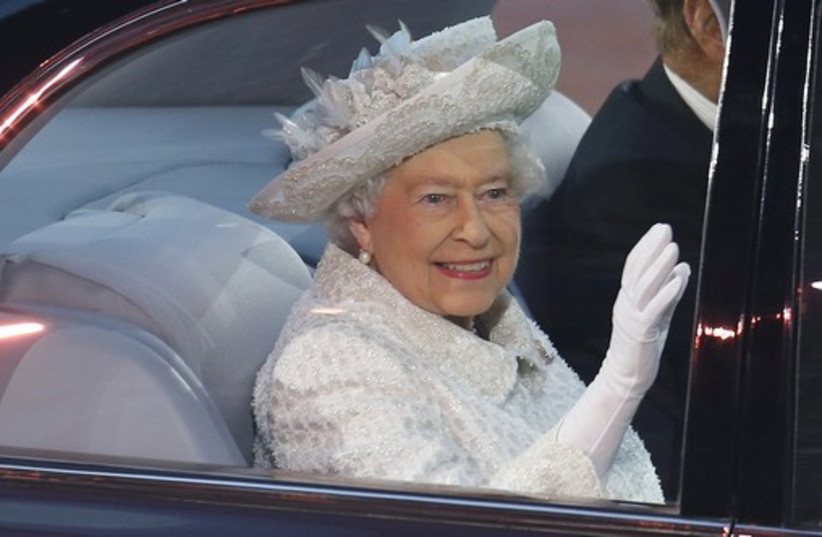Talk about a work ethic. Even in what would be the final days of her unique life, Queen Elizabeth II was hard at it, welcoming another new prime minister to her job.
Still, for the first time in her 70-year reign, the appointment did not take place in Buckingham Palace or Windsor Castle, in keeping with tradition, but at her Scottish residence, Balmoral Castle, where she was staying at the time. Frail of body, perhaps, but not of mind or sense of duty.
Earlier, she had seen off the outgoing prime minister, Boris Johnson, who also had an audience with her majesty at Balmoral to tender his own resignation.
According to Johnson, the queen had been “bright and focused” during their last meeting.
“One of the reasons it was so shocking to hear about her death was because in that audience she’d been absolutely ‘on it’ just two days before her death...”
Boris Johnson
“One of the reasons it was so shocking to hear about her death was because in that audience she’d been absolutely ‘on it’ just two days before her death...,” he told the BBC. The monarch had been “very bright, very focused [although] she was clearly not well.”
He also talked about the queen’s “amazing” sense of duty, which she carried with her right to the end.

Jane Barlow, a press photographer, was the last to take public photographs of the queen during her first meeting with new Prime Minister Liz Truss, at Balmoral. She also had the pleasure of chatting briefly with her, describing her as “very smiley” before Truss joined them in the room.
“I was there to photograph her meeting the new prime minister but for me the best picture was the one of the queen on her own,” she said, describing it as an “honor and a privilege” to be snapping that photograph.
Of course, it’s not just those who knew the queen who were profoundly affected by her death. From Paris to New York to Sydney, it was a cultural jolt.
Israel, too.
Israel's shock from Queen Elizabeth's death
As a Brit living in the Jewish state, I had a strange feeling of detachment on Thursday afternoon as I watched BBC1 when news trickled through about the queen’s illness and subsequent demise. I was immediately transported back to Britain. The rain sheeting down, the gray skies, the mass of brollies outside Buckingham Palace – all so familiar and comforting. When I looked out of my lounge window, however, I was momentarily shocked. The sight of blue skies and palm trees jolted me back to reality. At that moment, I felt like a stranger in a strange land.
At times like this, I am a Brit. I crave the company of other Brits who understand why I’ve become slightly obsessed with the death of her majesty, a woman whom I’ve never even seen in the flesh, let alone met.
I was particularly interested to find out how other Brits – along with non-Brits- who live here were affected.
British-born Lola Cohen, was overcome with grief: “I am 90, grew up in the UK during the war years greatly loving and admiring the royal family. I feel devastated, as though I had lost a beloved relative,” she laments.
Other former Brits in Israel didn’t always share her sentiment. As Julie Portner told me, “I truly can’t say I feel sad but having said that I do get that British citizens especially in the UK are going through loss [but] I feel like I’m watching from the outside,” she said.
And it’s not just Anglos who are mourning the death of the queen. Her demise signifies the end of an era for many others, including Joy Lerne, an American by birth, who lived in Belgium for 40 years before making aliyah.
“I am distraught, “ she says. “I can’t stop crying. Her death signals the end of an era of decency, kindness, selflessness, service and humility.”
Others, some of whom are not particularly well disposed toward the British monarchy, have been surprised by their own reaction to the queen’s death.
American-born Michael Brown said that, despite his “negative” feelings about the British monarchy and British imperialism: “She was queen for my entire life and I always felt she took her vow of service seriously. Her Christmas speech during the pandemic moved me deeply. And I find myself unexpectedly mourning her passing,”
Dutiful to the very end, then, she was a source of inspiration for many. A woman to look up to, but not without fault. Someone to whom we could relate and revere in equal measure.
She reminded us of our own grandmas, whose mantelpieces were adorned with treasured items of royal memorabilia from decades gone by. She was the link to our past; the golden thread that ran through our lives.
Which is why her death was not just sad, but shocking and devastating for so many. The 96-year-old had pride of place on the global mantelpiece for as long as most of us could remember.
The writer is a former lawyer from Manchester, England. She now lives in Netanya, where she spends most of her time writing and enjoying her new life in Israel.
